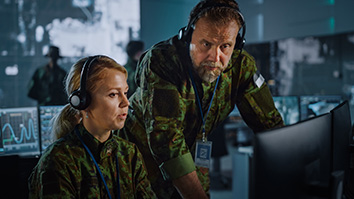Citation
Quellmalz, E., & Schank, P. (April, 1998). Performance Assessment Links in Science (PALS): On-line, Interactive Resources. Presented at the annual meeting of the American Education Research Association in San Diego, CA., April 1998.
Introduction
Understanding the central role that performance assessment plays in standards-based reform, educators are seeking ways to use these assessments to test student learning. Education agencies need pools of performance tasks to use as components in their student assessment programs and in evaluations of state and federally funded programs (McLaughlin & Shepard, 1995). Reform projects need standards-based assessment, too, as do teachers who are trying to implement reforms. Experience indicates, however, that the level of effort and costs of developing performance assessment tasks, scoring rubrics, and rater training materials, and then ensuring their technical quality, are very high (CPRE, 1995; Quellmalz, 1984). To meet the need for innovative approaches for sharing exemplary assessment resources, collaborating on the development of new ones, and understanding how the use of standards-based performance assessment can advance educational reform at all levels of the educational system, SRI International and the Council of Chief State School Officers (CCSSO) are developing Performance Assessment Links in Science (PALS), a greatly needed, specialized type of electronic library-an on-line, standards-based, interactive resource bank of science performance assessments-and studying models of effective use of these resources.
In this paper, we will discuss the role performance assessments can play in education reforms, suggest how technology expands the ways in which educators can access and use standards-based assessments and engage in collaborative professional development, describe the features of the on-line assessment resource bank, describe the results of prototype testing of the system, and raise some issues involved in developing and expanding an on-line assessment resource library.


